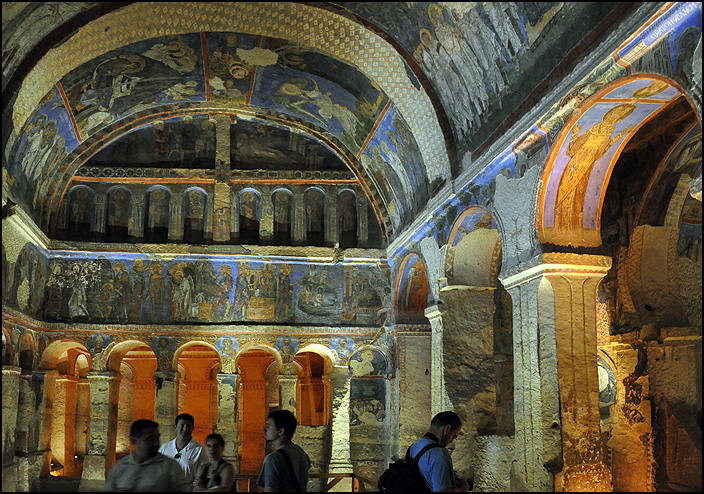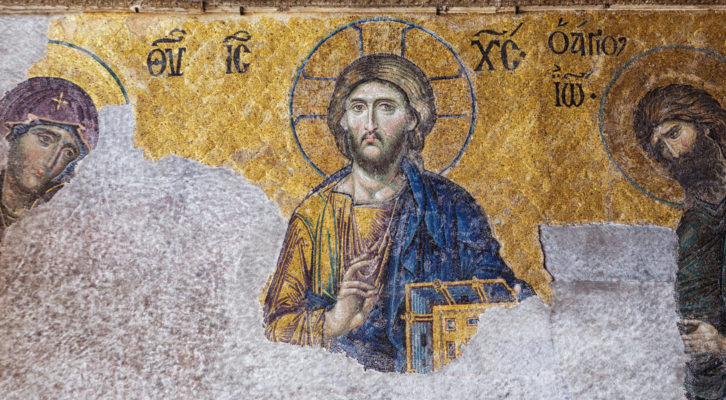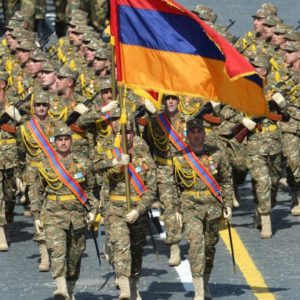The Ecumenical Patriarchate of Constantinople, the spiritual center of Orthodox Christianity which is based in Turkey, is unable to train clergy and potential successors for the position of patriarch. The reason is that the Halki Seminary, the only school for training the leadership of Orthodox Christianity, was forcibly closed down by the Turkish government in 1971. It has been waiting to re-open its doors ever since.
The closing of the Halki seminary, which was founded in 1844 on the island of Halki (Heybeliada), has made it very difficult for the Ecumenical Patriarchate to survive. The Allard K. Lowenstein International Human Rights Clinic of Yale Law School explains in its 2004 legal analysis the consequences of the forced governmental closure of Halki.
“As a result, Orthodox clergy must train abroad. Turkey also requires all Patriarchate leadership to be Turkish citizens. With Turkey’s dwindling Orthodox population, the pool of candidates for leadership is disappearing. Moreover, the Turkish government maintains power to decide who may or may not become the Ecumenical Patriarch. During each election of a new Ecumenical Patriarch, the Patriarchate must submit a list of candidates to the governor of Istanbul for approval. The governor may strike out any names and reject the ultimate choice of the electors, and he has done so throughout the 20th century.”
The Ecumenical Patriarchate faces many other existential challenges beside the forced closure of Halki. The report details how the Turkish government interferes with the activities of Orthodox bishops, how the Patriarchate and religious minorities cannot freely exercise the right to operate parochial schools and how Turkish law enforcement fails to protect adequately the Patriarch’s residence and other Orthodox sites from attack and to investigate and prosecute such attacks.
Since the founding of the Turkish republic in 1923, Turkey has interfered with the Patriarchate’s freedom of religion, and has discriminated against the Orthodox minority in the country.
The Turkish government, for example, does not allow the adjective “ecumenical” to be used in connection with the Patriarch or Patriarchate. – as opposed to the fact that proper title of the Patriarchate, as recognized around the world, is the Ecumenical Patriarchate of Constantinople.
The Ecumenical Patriarch, the highest authority of the church, leads the world’s 300 million Orthodox Christians. It was the Apostle Andrew, the brother of Saint Peter, who established the Ecumenical Patriarchate in what was then the Roman Empire in 37 A.D. The Turkish government, however, considers the Patriarchate to be a “minority” institution only and can arbitrarily veto any candidate in elections for the position of Ecumenical Patriarch.
Turkey also denies the Ecumenical Patriarchate a legal personality. This situation creates serious problems with regard to the Patriarchate’s property rights. Even the Patriarchal House is not considered by the Turkish government to be the property of the Patriarchate.
“Turkish laws treat religious minority foundations, including Orthodox foundations, differently than other foundations… Orthodox foundations, unlike other Turkish foundations, are still required to obtain permission to acquire real property from the General Directorate of Foundations.”
And even on those rare occasions when the Ecumenical Patriarchate succeeds in repossessing its seized properties, Turkish authorities try to confiscate them again. In April 2016, for example, the Istanbul Forestry Directorate filed a lawsuit requesting the cancellation of the deeds for two properties returned to the Ecumenical Patriarchate in 2012. One of the two properties includes the hill on which Halki Seminary is located.
The Order of Saint Andrew Archons of the Ecumenical Patriarchate has declared in its religious freedom report:
“Requiring that the Ecumenical Patriarch be a Turkish citizen while keeping Turkish citizens from qualifying ensures the governmental extinction of the Ecumenical Patriarchate. Not reopening the theological school guarantees that none of the remaining 2,000 Turkish citizens who are Orthodox (reduced from hundreds-of-thousands by official discrimination) can become clergy and, more importantly, Ecumenical Patriarch.
“In many ways the Ecumenical Patriarchate is to Orthodox Christians what the Vatican is to Catholics. This living pillar of history for all Christians is jeopardized. A nearly 2000-year-old part of the history of all Christian faiths is being threatened by policies of the Turkish government.”
The Ecumenical Patriarchate cannot even operate its most important theological school presently even though Christianity is deeply rooted in Asia Minor, today’s Turkey.
“After Israel, Turkey has more biblical sites than any other country in the Middle East,” according to the Seven Churches Network website. “For this reason, Turkey is rightly called the Other Holy Land. The three major apostles – Peter, Paul and John – either ministered or lived in Turkey.”

It is estimated that approximately 60 percent of the names of the places mentioned in the Bible are in Turkey.
However, only 0.2 percent of Turkey’s population is Christian or Jewish and there are only fewer than 2,000 Greek-speaking Christians left in the country today. This precipitous decline has not been due to natural causes.
The persecution of the ethnic Greeks of Turkey, which culminated into the 1955 anti-Greek pogrom and the 1964 mass deportation of Greek citizens, has brought the Greek- speaking citizens of the country to near-extinction.
But ironically, it was the Greeks who founded the cities that are in Asia Minor along the coast of Mediterranean, Aegean and Black Seas in the 9th and 8th centuries B.C., which are now within the borders of Turkey.
Turkic jihadists from Central Asia invaded and began to conquer Asia Minor only in the eleventh century. At the time, the region was ruled by the Greek-speaking Byzantine Empire and the majority of the population was Christian. The Patriarch was then the bishop of Constantinople, the capital of the Byzantine Empire, and the second most important Christian leader after the Pope in Rome, according to the Second Ecumenical Council of Constantinople, held in the year 381.
Constantinople, founded by the Roman emperor Constantine I (324–337), was invaded and captured by the Ottomans in 1453. Since then, the Patriarchate has been subjected to harsh Turkish rule, and Patriarchs and Christian residents of the land have been severely persecuted.
The metropolitan and theologian Timothy Warenotes in his book The Orthodox Church:
“Out of 159 Patriarchs who have held office between the 15th and 20th centuries, the Turks have on 105 occasions driven Patriarchs from their throne; there have been 27 abdications, often involuntary; 6 Patriarchs have suffered violent deaths by hanging, poisoning, or drowning; and only 21 have died natural deaths while in office. During the 17th century, the Patriarch changed 61 times (many Patriarchs served more than once, returning to their post after having been exiled or deposed).”
Bartholomew I is the 270th and current Archbishop of Constantinople and has served as Ecumenical Patriarch since 1991. And he has been repeatedly calling on the Turkish government to reopen the Halki seminary. In May, he once again said at a public event in Istanbul:
“Our sole purpose is to keep our foundations and institutions functioning… The main problem that makes us lose sleep is the seminary. Our greatest desire is to open the seminary, which has been closed for 46 years. We are calling on the Turkish state to open this important Christian center that was closed due to unjust policies of the past.”
U.S. administrations have also repeatedly urged Turkey to re-open the Halki and respect the rights and religious freedom of the Ecumenical Patriarchate. Back in 1995, Senator Olympia Snowe stated at a Congressional hearing that “Turkey’s policies place the very existence of the Patriarchate in jeopardy.”
According to the International Religious Freedom Report for 2016 issued by the U.S. Department of State, “The Secretary of State and Deputy Secretary of State, in meetings with government officials in Washington, continued to call for the reopening of the Halki Greek Orthodox seminary.” But calls or verbal requests by the U.S. do not seem to have any influence on the actions of the Turkish government.
Given the current status of the Halki seminary and other pressures on the tiny Orthodox community in the country, the Ecumenical Patriarchate is now on the verge of death due to the policies of the Turkish government. It seems that the Republic of Turkey, an ostensible NATO ally and a perpetual applicant for EU membership, has achieved what even the Ottoman Caliphate could or did not do.
The article originally was published in www.philosproject.org 23/10/2017
Uzay Bulut is a Turkish journalist formerly based in Ankara. She is presently in Washington, D.C. Follow her on Twitter at twitter.com/uzayb







